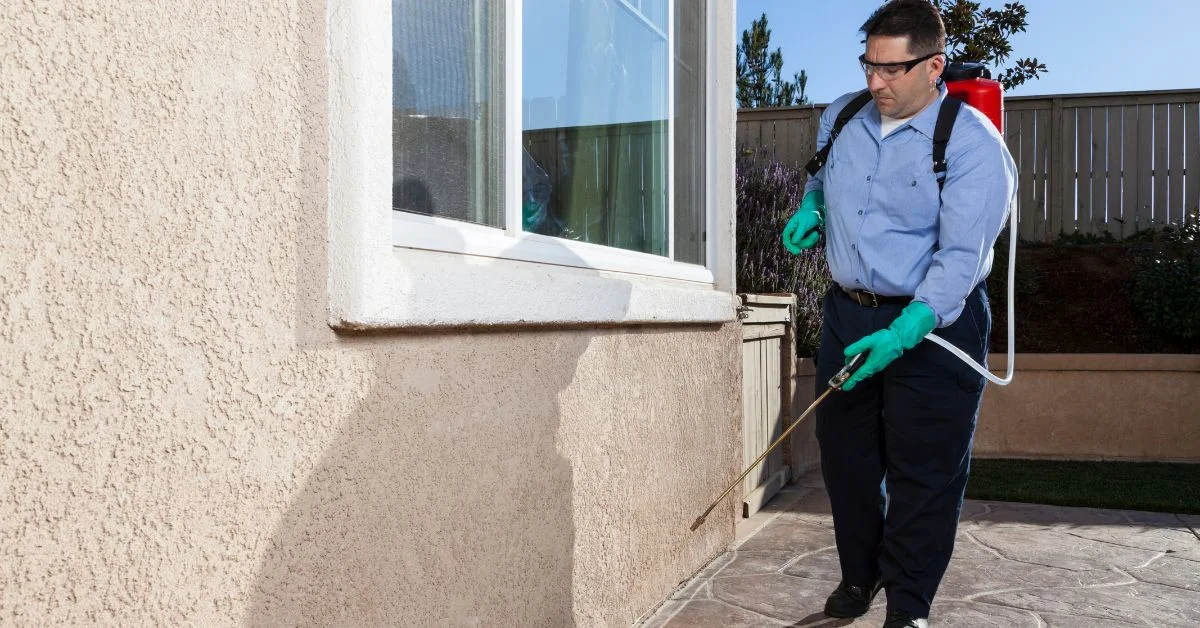When it comes to dealing with pests, misconceptions often lead to ineffective control measures and wasted efforts. From old wives’ tales to widely accepted myths, misinformation can prevent homeowners from properly addressing pest issues. Understanding the truth about pest behavior, prevention, and control is essential for maintaining a pest-free home.
This article explores some of the most common pest-related myths, debunking them with facts and expert insights. With accurate knowledge and support from trusted professionals like Habitat Pest & Lawn, you can tackle pests with confidence and efficiency.
Myth 1: Clean Homes Don’t Attract Pests
The Truth: Even spotless homes can have pest problems.
While cleanliness reduces food sources for pests, it doesn’t eliminate the factors that attract them. Rodents, spiders, and insects are often drawn by warmth, shelter, and moisture, which can exist regardless of a home’s cleanliness.
What to Do:
- Seal cracks, gaps, and crevices to block entry points.
- Fix leaks and manage indoor humidity to reduce appeal.
- Regularly inspect hidden areas like basements, attics, and behind appliances.
Myth 2: Cats Are a Reliable Solution for Rodent Control
The Truth: While cats may catch the occasional mouse, they aren’t a foolproof solution.
Rodents are clever and can avoid areas where cats are active. Moreover, infestations often involve larger populations that cats cannot manage alone.
What to Do:
- Use traps and rodent-proofing techniques to address infestations comprehensively.
- Store food securely to reduce rodent attraction.
- Consider professional rodent control services for severe infestations.
Myth 3: Spiders Are a Sign of a Pest-Free Home
The Truth: Spiders in your home may indicate the presence of other pests.
Spiders feed on insects, so their presence often signals an abundant food source nearby. This means that other pests, such as flies, ants, or mosquitoes, may already be in your home.
What to Do:
- Identify and address the pests attracting spiders.
- Remove webs and vacuum corners regularly.
- Use natural deterrents like peppermint oil to repel spiders without chemicals.
Myth 4: Ultrasonic Pest Repellers Work on All Pests
The Truth: Scientific evidence supporting the effectiveness of ultrasonic pest repellents is limited.
These devices claim to deter pests by emitting high-frequency sounds, but their impact varies and may not provide consistent results. Some pests may even adapt to the noise over time.
What to Do:
- Combine multiple pest control strategies, including traps, barriers, and professional services.
- Focus on eliminating food, water, and shelter sources to discourage pests naturally.
Myth 5: DIY Pest Control Is Just as Effective as Professional Services
The Truth: While DIY methods can manage minor pest problems, severe infestations require professional expertise.
Home remedies often lack the precision and long-term effectiveness needed to address root causes. Professionals have the tools, knowledge, and experience to provide comprehensive solutions.
What to Do:
- Use DIY methods for small, isolated pest issues.
- Seek professional pest control for widespread infestations or recurring problems.
Habitat Pest & Lawn in Boise offers customized pest control plans designed to address your specific needs with lasting results.
Myth 6: Bed Bugs Are Only Found in Dirty Homes
The Truth: Bed bugs are opportunistic and can infest any home, regardless of cleanliness.
These pests hitchhike on luggage, clothing, or furniture, spreading quickly once they enter a home. Regular cleaning may help spot an infestation early but won’t prevent bed bugs from entering.
What to Do:
- Inspect second-hand furniture and luggage after traveling.
- Wash bedding regularly and check for signs of bed bugs, such as small stains or live bugs.
- Contact pest control experts if you suspect an infestation.
Myth 7: Killing Ants on Sight Solves the Problem
The Truth: Killing visible ants doesn’t address the colony producing them.
Ants you see are often scouts searching for food and reporting back to the colony. Killing them without targeting the nest only provides temporary relief.
What to Do:
- Identify and eliminate the nest to solve the problem at its source.
- Use ant baits that workers carry back to the colony to poison the queen and eliminate the infestation.
Myth 8: Mosquitoes Are Only Active at Night
The Truth: Some mosquito species are active during the day, particularly those that spread diseases like dengue and Zika virus.
While many mosquitoes prefer dawn and dusk, others thrive in shaded areas during daylight hours.
What to Do:
- Eliminate standing water where mosquitoes breed.
- Use insect repellents and install screens to block entry.
- Wear protective clothing when spending time outdoors.
Myth 9: Cockroaches Only Live in Dirty Places
The Truth: Cockroaches can survive in clean homes if they find food, water, and shelter.
These resilient pests are known for their ability to thrive in various conditions, including clean environments. They often hide in dark, moist areas like drains and behind appliances.
What to Do:
- Seal cracks and crevices where cockroaches can hide.
- Fix plumbing leaks and clean drains regularly.
- Use bait stations or traps to control infestations.
Myth 10: You’ll Always See Pests If You Have an Infestation
The Truth: Many pests are nocturnal or excellent at hiding, making infestations hard to detect.
Rodents, spiders, and cockroaches often remain hidden in walls, attics, or basements during the day. You may only notice signs of their activity, such as droppings or damage, long after they’ve established themselves.
What to Do:
- Learn to recognize subtle signs of pest activity, such as gnaw marks, droppings, or musty odors.
- Conduct regular inspections of your home.
Conclusion: Empower Yourself with Pest Control Knowledge
Misinformation can hinder your ability to effectively manage pests, but debunking these common myths is the first step toward better control. By understanding the truth about pest behavior and prevention, you can take smarter actions to protect your home and family.
For persistent issues or professional guidance, Habitat Pest & Lawn provides expert pest control solutions tailored to your needs. Trust the facts and take charge of your pest control efforts today.
Click here for more.









